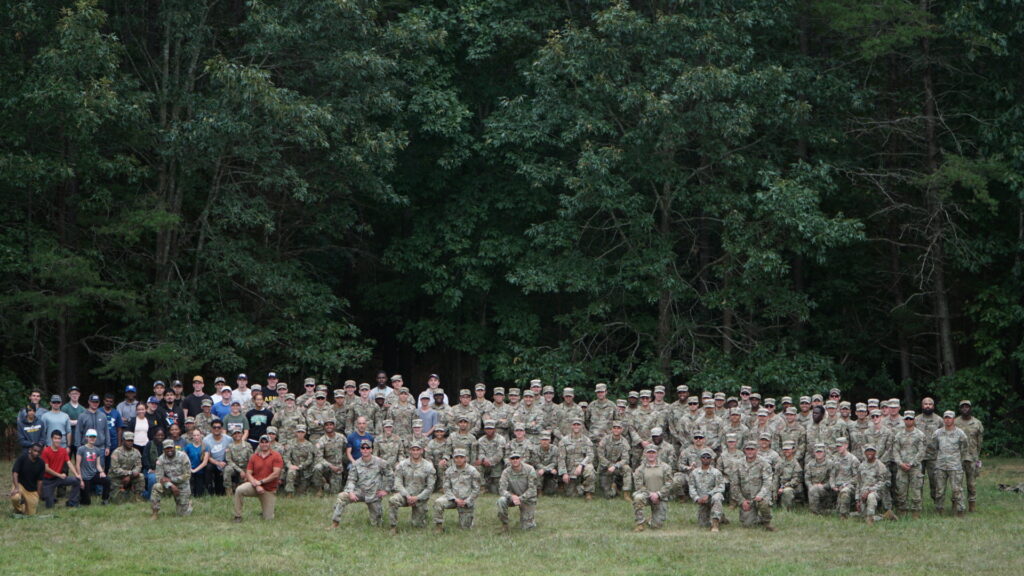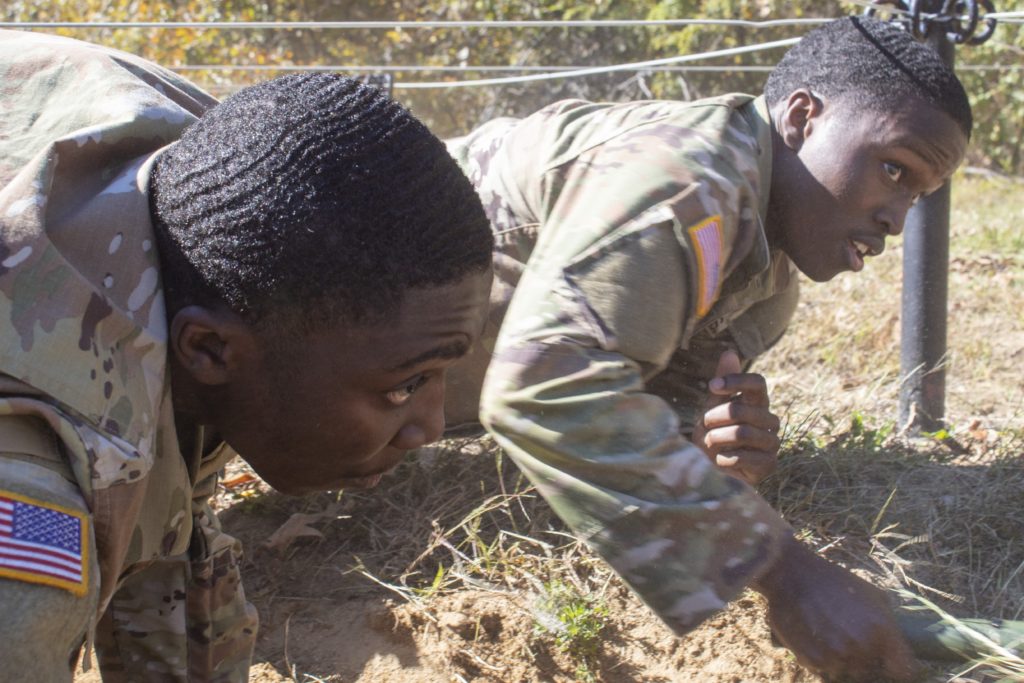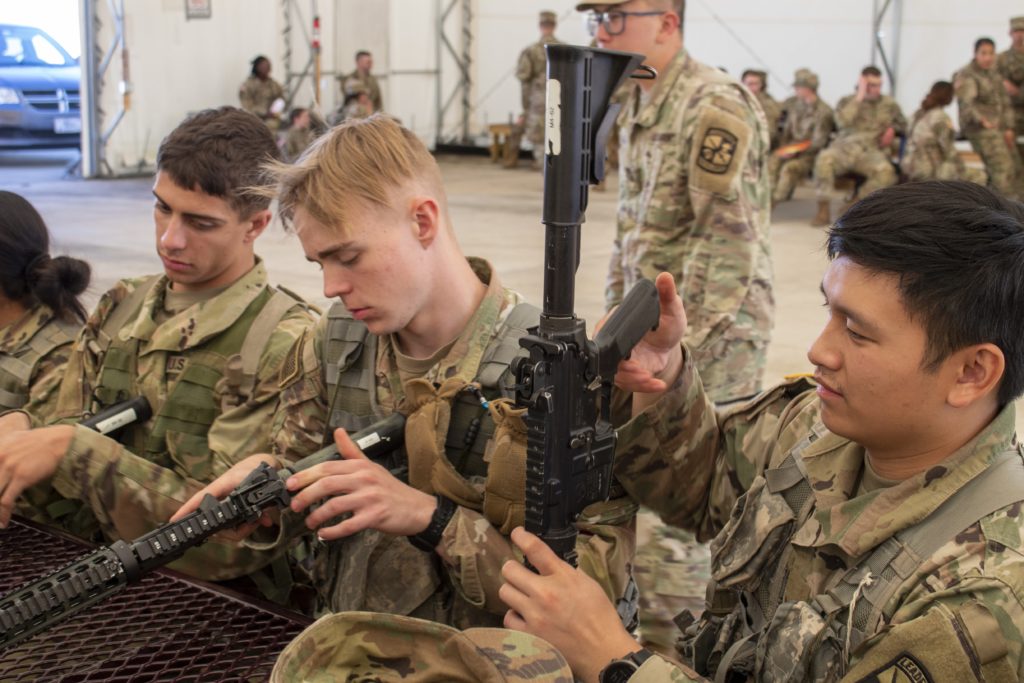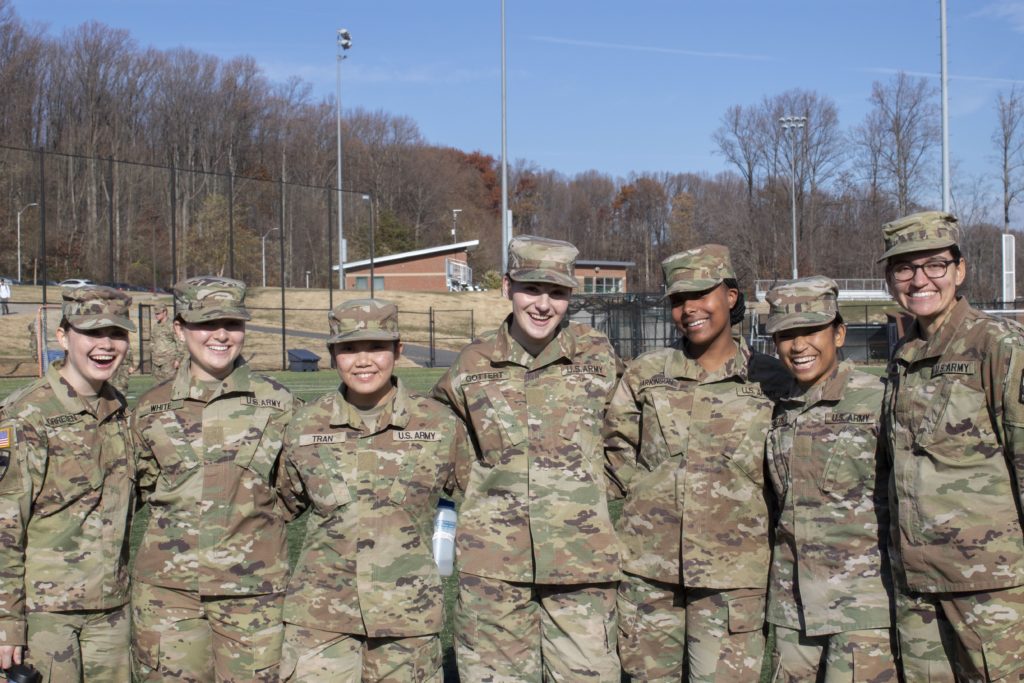
The George Mason’s Army Reserve Officers’ Training Corps (ROTC) began in 1982 and frequently conducts training with other universities throughout the District of Columbia, Maryland, and Virginia. The ROTC program consists of Military Science Courses (MSLC 100 to 400-level courses), Military Science Lab, physical training, and field training. Both undergraduate and graduate students may participate.
Military Science courses aim to develop students’ minds intellectually, teach Cadets about the contemporary operating environment, and prepare them mentally to lead troops in a multitude of missions and operations. As such, academics are the core of officer training. The first two years of ROTC (MLSC 100 and 200) focus on principles of officership, and they are free of obligation or commitment (non-contracted students). The last two years of ROTC (MLSC 300-400), prepares Cadets to commission as officers in the United States Army.
The weekly ROTC requirements incorporate both classroom academics as well as practical field training laboratories. Cadets are required to attend Military Science classes and labs each week, where they receive hands-on technical and tactical training. Such training includes leadership, military principles, military doctrine, drill & ceremony drill, land navigation, squad and platoon patrolling tactics, orienteering, field craft, and team-building.
Physical training (PT) is the foundation of training officers to be physically, mentally, and emotionally fit. PT is usually comprised of a workout including pushups, sit-ups, running, team and individual competition. Cadets conduct PT three days a week(Monday, Wednesday, Friday) in their organic companies on Mason’s athletic fields as well as throughout the Fairfax campus. Typical workouts involve exercise circuits, cardio days, weight training, and sports PT on special occasions throughout the semester.
Prior to receiving a commission, the summer before a Cadet’s academic senior year, Cadets attend the Advanced Camp at Ft. Knox, Kentucky. At Advance Camp, Cadets undergo rigorous training and are tested in their skills as a leader. Cadets are constantly rotated in different leadership roles as they must guide their soldiers through various tasks and trials. Such tasks may include a Field Leadership Reaction Course (in which a Cadet must lead his squad or platoon over a river by building a rope bridge), conquering an obstacle or confidence course, or tactical squad and patrolling missions in the field.
Upon Advanced Camp graduation, senior Cadets lead the Patriot Battalion as they train the incoming underclassmen Cadets. Senior cadets are assigned to a specific position within the Cadet Chain of Command in which they are either a Cadet Staff Officer or part of the Battalion and Company Command. In these roles, they create and execute the plans for various aspects of the program and are responsible for training the cadets in the freshman, sophomore, and junior grade levels.
Army ROTC Cadets graduate with a commission from the President of the United States as 2nd Lieutenant in the Active Army, the U.S. Army Reserve or the Army National Guard. The 2nd Lieutenant has 17 career options that may be chosen upon entry into the United States Army.



